Iceland 2024
Midnight Sun
Faculty: Aspen Mays
May 28: Zoom program meeting*
In Iceland June 4-June 22
Housing Check-in: Tuesday June 4 (class begins on June 5)
Housing Check-out: Sunday, June 22
*Before traveling abroad, the class will hold a preliminary one-day online seminar.
Interested in this program? Check out the class overview from Faculty Aspen Mays
Information Sessions:
Tuesday, February 13 3:15-4pm, ZOOM
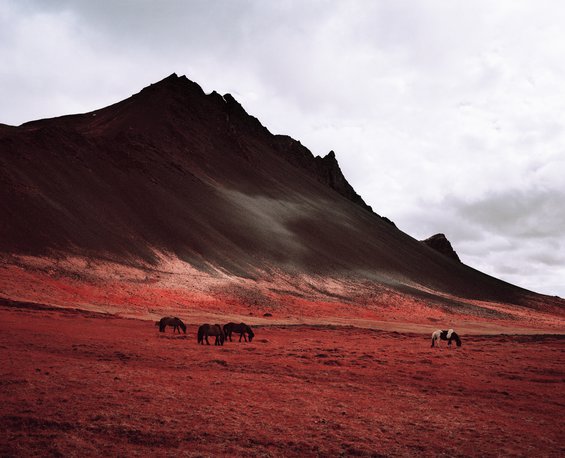
Program Description
Open to undergraduate and graduate students
Starting in mid May, the sun in Iceland only sets for three hours of twilight a day – a phenomenon known as the “Midnight Sun.” This abundance of daylight is but one backdrop to our experience of a land forged by fire and ice. The Mid-Atlantic Ridge, the boundary between the North American and Eurasian tectonic plates, runs through the center of the island nation, one of the only places on Earth where such a boundary rises above the ocean. The movement of these plates not only formed Iceland, but also continues to make it one of the most geologically active places on the planet (with over 30 volcanic mountains!) and incredible heated swimming pools all over the country (many of which we will visit). Iceland has harnessed these forces to generate all of its power from renewable geothermal and hydroelectric energy. What’s more, Iceland, a tumultuous land with a population of only 350,000 is known around the world for its remarkable creative output in art and music.
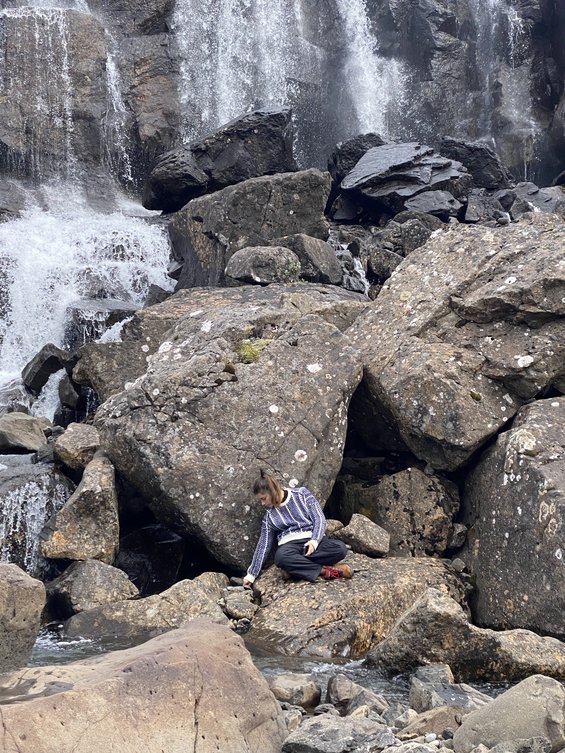
As we look to an uncertain future, many of the dynamic forces at play in Iceland offer valuable insights into coexisting with nature, creative problem solving, and living with a deep artistic engagement. As visitors, as artists and designers, how can we channel, observe, and participate in this rhythm of change, destruction, and regeneration? How does it shape what we make, the conversations we have, and the relationships we form?
Let’s find out together! We will ground our experiential approach in observational science as both model and metaphor for collaborative research and field work. In this three-week interdisciplinary course, students encounter the people, nature, culture, and history of Iceland. The first week takes place in the capital city of Reykjavik where we immerse ourselves in contemporary culture, social life, and the creative work of Icelanders. We visit galleries, museums, and artist studios to situate ourselves in Iceland’s vital interdisciplinary arts scene.
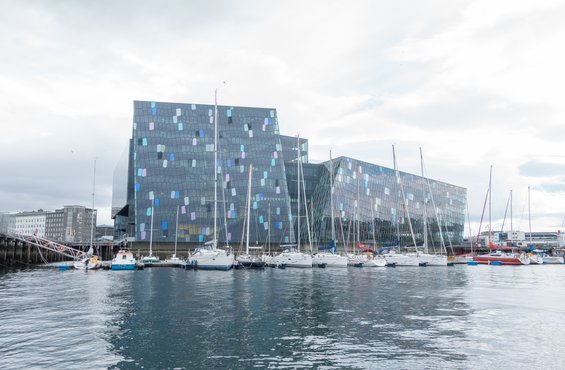
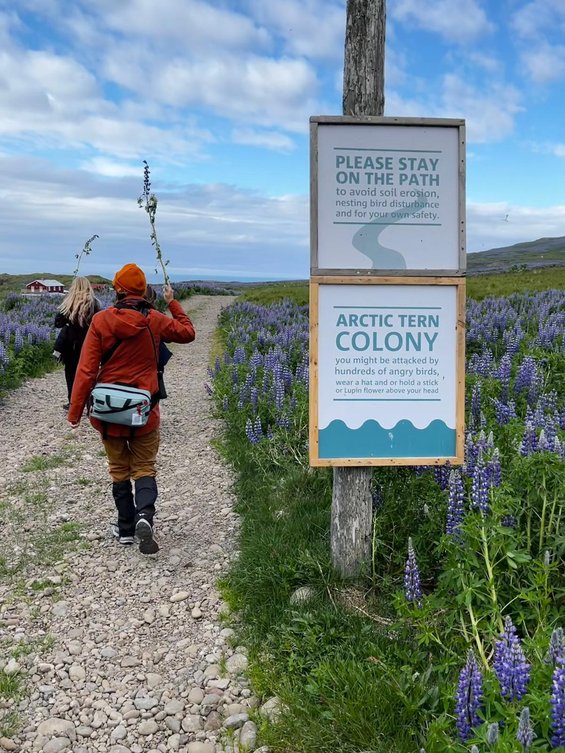
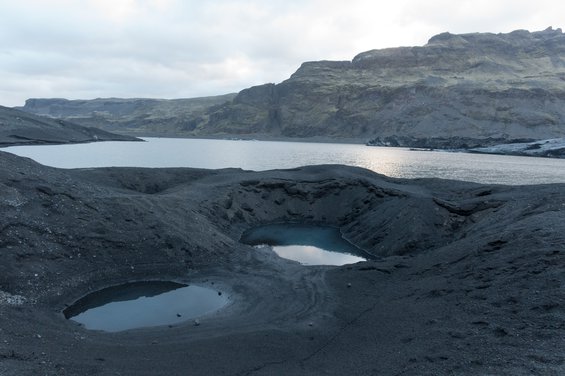
From Reykjavik, we journey south along the famous Ring Road to the fjords on the east coast of the island, where we spend the next 10 days in and around the tiny village of Seyðisfjörður. With a population of fewer than 700, this village was the location of Dieter Roth’s studio in the final decades of his life and is the current home of four different artist residencies, an experimental art school, a yearly arts festival, the site of a permanent sound sculpture in the mountains above the town, the location of archaeological research demonstrating continuous human occupation since the Viking settlement in 1000 BC, a seabird monitoring field station, and the port of arrival for a weekly ferry from Denmark, in operation since the last century.
In Seyðisfjörður, students will participate in a three day photography workshop with Ströndin Studio, geared towards using natural materials directly to make cyanotypes. No prior experience is necessary, and this workshop will be great for beginners and advanced students alike. We will also spend one week at the gorgeous and remote scientific field station, Skalanes. Located at the end of a fjord, Skalanes hosts zoological researchers from around the world. We will share the majestic living space with students from the University of Glasgow, studying the local puffin colony. While at Skalanes, we will explore potential locations for exhibiting work in progress, but more broadly, we discuss how to build artistic relationships for future art and science collaborations and what to consider as an artist and designer working in residencies and remote locations around the globe.
While students are encouraged to initiate and pursue individual lines of inquiry through exploring, journaling, and researching, a variety of prompts are also provided that center on direct observation and perception of the surrounding natural environment. All majors are welcome and final projects will be open to accommodate a variety of approaches, interests and site-specific responses to this incredible land.
As the class concludes, we travel north on the Ring Road back to Reykjavik, stopping at the remarkable village of Siglufjörður and Stykkishólmur (home to artist Roni Horn’s permanent installation, The Library of Water) effectively circumnavigating Iceland’s entire perimeter in our three-week journey.
Student Testimonials
“One of the best experiences learning and traveling I've ever had. The itinerary was impeccable, I truly learned so much about Iceland, and my own art practice. Aspen was exceptional at leading students through travel and inspiring us along the way.”
“I made so many significant memories, met amazing people, and went to the most beautiful places. I learned so much about interdisciplinary collaboration, combining science with art and collecting scientific field data.”
About the instructor
In her photographic work, Aspen Mays has been called a “Postmodern Mystic.” Her work challenges the expectation of photography as a documentary and categorical medium, and her research explores the visualization of knowledge in both visual art and observational sciences. She is interested in the fantasy of objectivity in photographic processes, the artifacts and archives of these processes, and the desire for transcendence in the ordinary and prosaic.
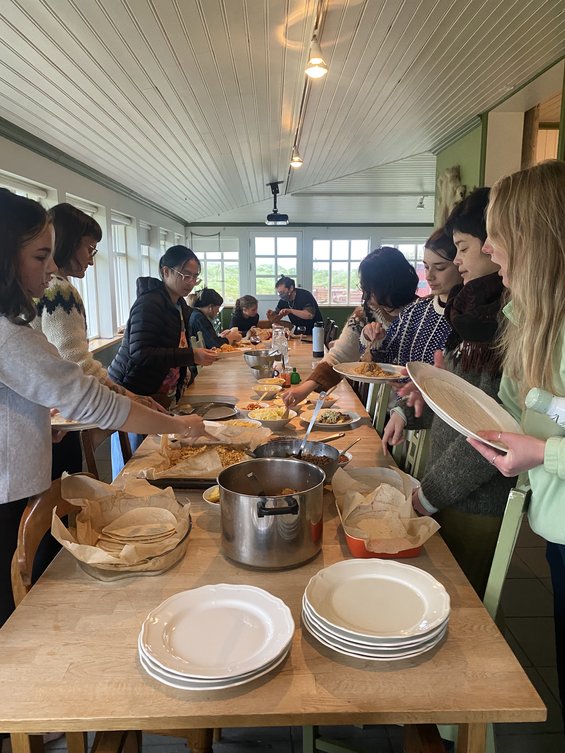
Prerequisites
- Undergraduate students: Completion of at least sophomore level by summer 2024 and instructor approval
- For Photo Advanced Workshop (PHOTO 3700) credit: PHOTO 3000, PHOTO 3400, PHOTO 4000, and instructor approval.
- For Upper-Division Interdisciplinary Studio credit: Drawing 1, 2D, 3D, 4D, Writing 1, Foundations in Critical Studies, Intro to the Arts and Intro to the Modern Arts. Junior Standing and instructor approval.
- Graduate students: Instructor approval
In addition, all students must be in good academic, conduct, and financial standing for the 2023-24 academic year. Students who are on probation in fall 2023 are not eligible to enroll in a 2024 summer study-abroad program.
Course Satisfies
- For undergraduate students, this course satisfies a Studio Elective or, for students who have achieved junior or senior standing by Summer 2023, an Upper Division Interdisciplinary Studio (UDIST 3000). This course also satisfies an Ecological Practices minor requirement.
- For photo undergraduates, this course satisfies a Studio Elective, an Upper Division Interdisciplinary Studio , or a Photo Advanced Workshop requirement (PHOTO 3700).
- For graduate students, this course satisfies a Grad-wide Elective (GELCT-6500) or Fine Arts Elective (FINAR-6480).
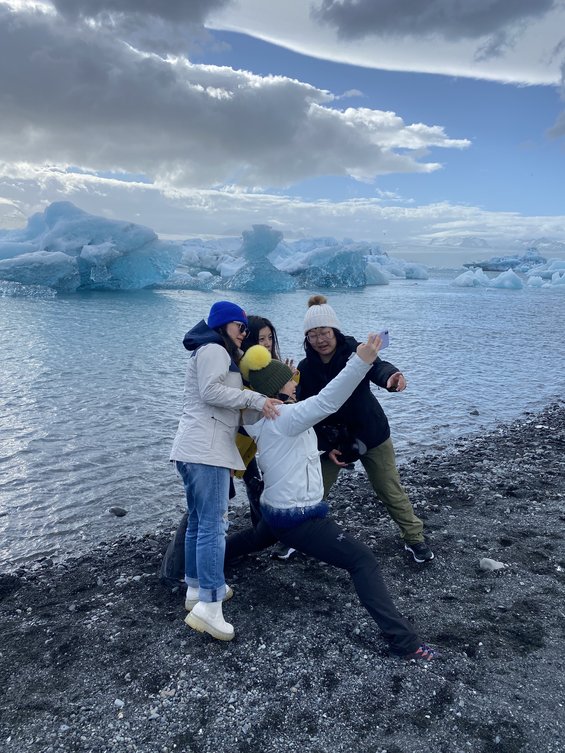
Program Tuition:
$7000+ $50 summer registration fee
Included in the program tuition:
- 3 credits, housing, shared studio space, one group dinner, guest lectures, museum entrance fees, field trips, and supplemental travel/health insurance
Not included in the program tuition:
- Airfare to and from Iceland, ground transportation to and from the airport in Iceland, most meals, primary health insurance
Please read the Summer Study Abroad Registration & Related Information in its entirety.
Questions
Please see Frequently Asked Questions or email studyabroad@cca.edu.
